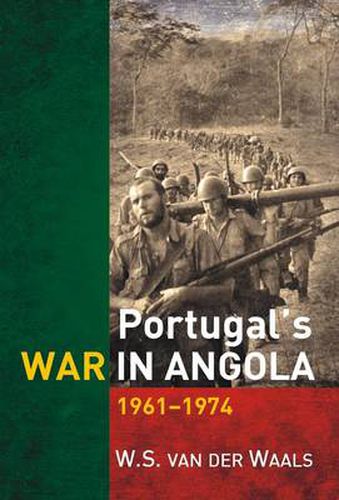Readings Newsletter
Become a Readings Member to make your shopping experience even easier.
Sign in or sign up for free!
You’re not far away from qualifying for FREE standard shipping within Australia
You’ve qualified for FREE standard shipping within Australia
The cart is loading…






In January 1961, Angola, one of Portugal’s most thriving overseas provinces was in the eye of a storm. A period of sustained growth in the 1950s, a golden decade of Portuguese African history, had led to Angola becoming one of Portugal’s most prized possessions. National development plans were embarked on with zeal; new roads, railways, factories, harbours, airfields and settlements were built and exports increased dramatically. While the rest of Africa was in turmoil, Angola and Portuguese Mozambique, seemed like oases of peace and progress. On 4 February 1961, the day regarded by the MPLA as the start of its national revolution, the storm broke. Taken unawares by the shock of the uprisings in Angola, and the subsequent bloody Bacongo insurrection on 15 March 1961, Portugal was to plunge its armed forces, untested since World War I, into an urgent counteroffensive.
$9.00 standard shipping within Australia
FREE standard shipping within Australia for orders over $100.00
Express & International shipping calculated at checkout
In January 1961, Angola, one of Portugal’s most thriving overseas provinces was in the eye of a storm. A period of sustained growth in the 1950s, a golden decade of Portuguese African history, had led to Angola becoming one of Portugal’s most prized possessions. National development plans were embarked on with zeal; new roads, railways, factories, harbours, airfields and settlements were built and exports increased dramatically. While the rest of Africa was in turmoil, Angola and Portuguese Mozambique, seemed like oases of peace and progress. On 4 February 1961, the day regarded by the MPLA as the start of its national revolution, the storm broke. Taken unawares by the shock of the uprisings in Angola, and the subsequent bloody Bacongo insurrection on 15 March 1961, Portugal was to plunge its armed forces, untested since World War I, into an urgent counteroffensive.